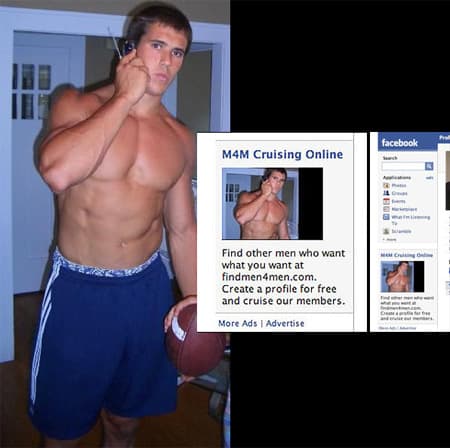Intercourse on Campus
Identity-
Free
Identity
Politics
A report from
the agender,
aromantic, asexual
forward line.

Photographs by
Elliott Brown, Jr.
NYU class of 2016
“At this time, I declare that i’m agender.
I’m eliminating me from social construct of gender,” says Mars Marson, a 21-year-old NYU movie significant with a thatch of brief black colored tresses.
Marson is conversing with myself amid a roomful of Queer Union students at school’s LGBTQ pupil heart, where a front-desk container supplies free buttons that let website visitors proclaim their unique recom4m hookupsended pronoun. In the seven college students gathered within Queer Union, five like the single
they,
designed to denote the sort of post-gender self-identification Marson defines.
Marson was given birth to a female naturally and arrived on the scene as a lesbian in senior school. But NYU ended up being a revelation â somewhere to explore transgenderism right after which decline it. “I don’t feel connected to the phrase
transgender
because it seems more resonant with digital trans men and women,” Marson says, talking about individuals who should tread a linear path from feminine to male, or the other way around. You might claim that Marson and also the different pupils within Queer Union identify as an alternative with getting somewhere in the center of the way, but that’s not exactly right possibly. “I think âin the middle’ still leaves female and male just like the be-all-end-all,” states Thomas Rabuano, 19, a sophomore crisis major exactly who wears beauty products, a turbanlike headband, and a flowy shirt and skirt and alludes to woman Gaga and also the gay fictional character Kurt on
Glee
as huge teenage character versions. “i enjoy contemplate it external.” Everybody in the class
mm-hmmm
s approval and snaps their particular fingers in accord. Amina Sayeed, 19, a sophomore from Des Moines, believes. “Traditional ladies clothing are feminine and colourful and emphasized that I got boobs. We hated that,” Sayeed claims. “So now I say that I’m an agender demi-girl with link with the female binary sex.”
On the far side of campus identity politics
â the locations when occupied by lgbt pupils and later by transgender people â you now select purse of students such as these, young adults for who tries to categorize identification sense anachronistic, oppressive, or just sorely unimportant. For older generations of homosexual and queer communities, the fight (and exhilaration) of identification research on university will look rather familiar. Nevertheless differences today tend to be striking. The current project isn’t only about questioning a person’s own identification; it is more about questioning the very character of identification. You might not end up being a boy, however you is almost certainly not a girl, sometimes, and exactly how comfy are you currently together with the idea of becoming neither? You might want to rest with males, or ladies, or transmen, or transwomen, therefore might choose to be psychologically a part of all of them, too â but not in the same blend, since why must your enchanting and intimate orientations fundamentally need to be a similar thing? Or exactly why contemplate orientation anyway? Your own appetites might-be panromantic but asexual; you may determine as a cisgender (not transgender) aromantic. The linguistic options are nearly unlimited: a good amount of vocabulary designed to articulate the part of imprecision in identification. And it’s a worldview that is definitely about words and feelings: For a movement of teenagers moving the limits of desire, it may feel remarkably unlibidinous.
A Glossary
The Elaborate Linguistics of the Campus Queer Movement
A few things about sex haven’t changed, and not will. But also for many of those who went to school many years ago â if not just a couple of years ago â a few of the most recent sexual terminology tends to be unknown. Below, a cheat sheet.
Agender:
a person who determines as neither male nor female
Asexual:
someone who doesn’t encounter sexual desire, but who may go through passionate longing
Aromantic:
a person who does not encounter romantic longing, but really does knowledge sexual interest

Cisgender:
not transgender; hawaii where sex you identify with fits the main one you were assigned at birth
Demisexual:
a person with restricted sexual interest, typically believed only relating to deep emotional connection
Gender:
a 20th-century constraint
Genderqueer:
you with an identity beyond your old-fashioned sex binaries
Graysexual:
a wide phase for a person with restricted sexual desire
Intersectionality:
the belief that sex, competition, class, and intimate orientation should not be interrogated separately from 1 another
Panromantic:
someone who is actually romantically into any individual of every sex or positioning; this doesn’t fundamentally connote accompanying sexual interest
Pansexual:
someone who is actually sexually interested in any person of any gender or positioning
Reporting by
Allison P. Davis
and
Jessica Roy
Robyn Ochs, an old Harvard officer who was from the college for 26 many years (and which started the school’s team for LGBTQ professors and employees), sees one major reasons why these linguistically complex identities have actually all of a sudden become very popular: “I ask young queer folks how they discovered labels they explain on their own with,” states Ochs, “and Tumblr is the # 1 response.” The social-media program has produced so many microcommunities global, such as Queer Muslims, Queers With Disabilities, and Trans Jewry. Jack Halberstam, a 53-year-old self-identified “trans butch” professor of sex researches at USC, especially alludes to Judith Butler’s 1990 publication,
Gender Problems,
the gender-theory bible for university queers. Quotes from it, such as the a lot reblogged “there’s absolutely no gender identity behind the expressions of sex; that identification is performatively constituted by extremely âexpressions’ that are reported to be its outcomes,” have become Tumblr bait â perhaps the planet’s the very least probably widespread content material.
But some regarding the queer NYU pupils I talked to failed to come to be certainly acquainted with the language they now use to describe by themselves until they arrived at college. Campuses are staffed by directors who came old in the 1st revolution of political correctness as well as the level of semiotics-deconstruction mania. In college now, intersectionality (the theory that race, course, and gender identification are common connected) is actually central their means of comprehending almost everything. But rejecting groups altogether can be sexy, transgressive, a useful option to win a quarrel or feel special.
Or that’s as well cynical. Despite how serious this lexical contortion might seem to a few, the scholars’ really wants to establish themselves outside of gender decided an outgrowth of intense pain and strong scarring from being elevated inside the to-them-unbearable character of “boy” or “girl.” Developing an identity that’s described with what you
aren’t
does not appear particularly simple. I ask the students if their new social license to identify themselves beyond sexuality and sex, if sheer multitude of self-identifying options they’ve got â such as Twitter’s much-hyped 58 gender choices, everything from “trans person” to “genderqueer” into the vaguely French-sounding “neutrois” (which, according to neutrois.com, can’t be described, because really point to be neutrois is the fact that your gender is individual for you) â often renders them sensation just as if they can be boating in space.
“i’m like i am in a sweets shop and there’s all these different choices,” says Darya Goharian, 22, an elderly from an Iranian household in a wealthy D.C. area who identifies as trans nonbinary. However even word
choices
is generally as well close-minded for many for the party. “we simply take problem with that phrase,” claims Marson. “it generates it feel like you are deciding to end up being anything, if it is perhaps not a choice but an inherent part of you as an individual.”
Amina Sayeed recognizes as an aromantic, agender demi-girl with link with the female binary gender.
Picture:
Elliott Brown, Jr., NYU class of 2016
Levi straight back, 20, is actually a premed who was simply practically knocked out-of general public twelfth grade in Oklahoma after coming-out as a lesbian. Nevertheless now, “we determine as panromantic, asexual, agender â incase you wanna shorten it all, we could simply go as queer,” Back claims. “I do not enjoy intimate appeal to any person, but I’m in a relationship with another asexual individual. We don’t have sex, but we cuddle on a regular basis, kiss, make out, hold hands. Whatever you’d see in a PG rom-com.” Back had previously outdated and slept with a lady, but, “as time continued, I was much less thinking about it, therefore turned into similar to a chore. After all, it believed good, nevertheless did not feel just like I found myself creating a stronger connection through that.”
Now, with again’s existing girlfriend, “many why is this commitment is our very own mental link. As well as how open we are together.”
Right back has begun an asexual group at NYU; anywhere between ten and 15 people generally show up to conferences. Sayeed â the agender demi-girl â is one of them, as well, but determines as aromantic instead asexual. “I’d had sex by the point I found myself 16 or 17. Women before kids, but both,” Sayeed claims. Sayeed still has intercourse from time to time. “But I really don’t discover any type of passionate attraction. I got never ever understood the technical phrase for this or any. I am still capable feel love: i really like my pals, and I also like my family.” But of slipping
in
really love, Sayeed says, with no wistfulness or doubt that might transform later in daily life, “i assume i simply do not realise why we ever would now.”
Much on the private politics of history involved insisting on the directly to rest with any individual; today, the sexual drive appears these the minimum section of today’s politics, including the authority to state you’ve got virtually no desire to sleep with anybody after all. Which would apparently run counter on much more traditional hookup tradition. But instead, possibly this is basically the then sensible step. If setting up has carefully decoupled sex from love and feelings, this activity is actually clarifying that you may have romance without intercourse.
Even though the rejection of intercourse isn’t by option, necessarily. Maximum Taylor, a 22-year-old transman junior at NYU which also determines as polyamorous, claims that it is been more difficult for him up to now since the guy began using human hormones. “I can’t check-out a bar and choose a straight lady and possess a one-night stand quickly any longer. It can become this thing in which basically want to have a one-night stand i must explain i am trans. My personal share men and women to flirt with is actually my personal area, where people understand one another,” states Taylor. “largely trans or genderqueer individuals of shade in Brooklyn. It is like I’m never ever gonna fulfill someone at a grocery shop once more.”
The difficult vocabulary, as well, can work as a coating of security. “you can aquire really comfy at the LGBT heart and get familiar with people inquiring your pronouns and everybody once you understand you are queer,” claims Xena Becker, 20, a sophomore from Evanston, Illinois, exactly who determines as a bisexual queer ciswoman. “but it is however really lonely, tough, and complicated a lot of the time. Even though there are other words does not mean your emotions are simpler.”
Added revealing by Alexa Tsoulis-Reay.
*This post appears inside the Oct 19, 2015 dilemma of
Ny
Magazine.
